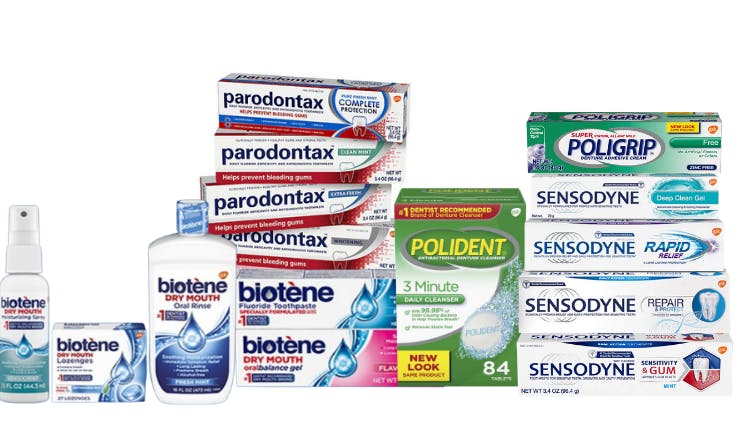Halitosis Management

Halitosis Management
When it comes to halitosis management, some patients are unsure where to begin. Lack of understanding in the general public about halitosis, or bad breath, has led to various misconceptions about the topic. Patients with halitosis may look towards products like gum and mints to treat the issue, with little or no success.1 As an oral healthcare professional, you can help patients with halitosis by overseeing their oral health and educating them on effective ways to help manage the situation.
Halitosis Management
Halitosis management can be divided into two categories: prevention and treatment. Practicing good oral hygiene can help prevent and help reduce bad breath.1 If the patient’s halitosis is due to an oral health condition, such as dry mouth, or a general health problem like GERD, additional measures may need to be taken to treat the underlying cause, including referring the patient to a physician if necessary.1 Below, we take a closer look at halitosis prevention and treatment.
The Importance of Oral Hygiene
In many cases, halitosis can be prevented through home oral care, avoidance of foods that cause bad breath, and seeing a dentist about their oral health habits and diet regularly to uncover underlying health conditions.1 Ask your patients with halitosis about their oral health habits. Ensure brushing and flossing are a consistent part of their daily routine.1 If your patient wears dentures, ask them what products they use to clean their dentures and how regularly they do so.1 In addition, double-check denture fit. Poor fitting dentures and unclean dentures can harbor odor causing bacteria and food particles that can add to the cause of halitosis.1
Explore home oral care guidelines from the American Dental Association below. These are general recommendations and you may need to adjust according to your patient’s individual wants and needs:2
- Brush twice a day with a fluoride toothpaste and for two minutes per brushing session. Our Sensodyne, Pronamel, and parodontax product lines offer options for fluoride toothpaste.
- Clean between teeth using floss once a day. Make sure patients understand the proper flossing technique.
- Eat a healthy diet to promote oral health and overall health. Avoid sugary drinks and snacks to reduce the risk of caries.
- See a dentist regularly to prevent and treat oral health diseases.
For patients that wear dentures, it is a recommendation to check the fit, as poor fitting dentures can lead to bad breath. In addition, it is best to advise your patients to clean their dentures regularly. Provide patients with instructions on how to clean dentures.3
- Rinse away loose food particles and remove any denture adhesive.
- Use Polident denture cleanser tablets to kill 99.9% of odor-causing bacteria and warm water to soak dentures when they aren’t being worn.
- Follow any additional instructions for cleaning dentures provided by the denture manufacturer or available on the Polident product label.
Halitosis Prevention Through Diet
Diet can impact the state of your patient’s breath. To help prevent halitosis, your patient may want to make changes in their diet. Certain foods may cause halitosis in patients, including onions, garlic, and spices.1 In addition, beverages with caffeine and alcohol can dry out the mouth and cause halitosis.4
Treating Conditions that Cause Halitosis
Improving oral health habits isn’t always enough to manage halitosis. If your patient has an underlying health condition that is causing bad breath, the condition will need to be treated before their halitosis can improve. Treatment will depend on the condition.
Oral health conditions that cause halitosis include:
Approximately 15% of persistent halitosis may result from non-oral sources. 5 These non-oral causes include respiratory disease, gastrointestinal disease, hepatic disease,drugs (blood borne), and metabolic conditions.5 If you suspect your patient is experiencing any of these conditions, refer them to a physician immediately.
Through proper oral care at home and regular dentist visits, halitosis management is possible. Learn more about other oral health conditions today.
